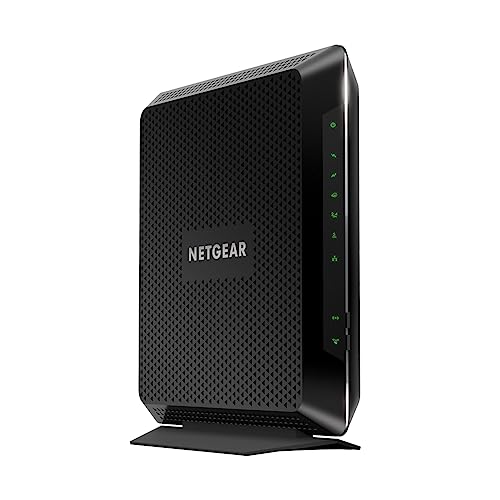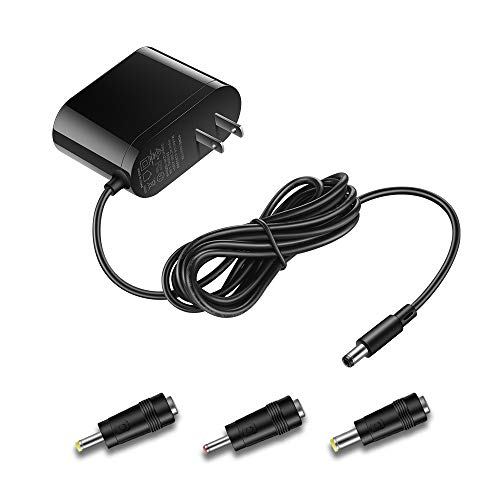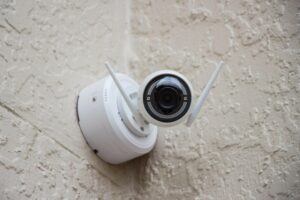You must know how it feels when we’re in a meeting or at home trying to get some work done, and our WiFi just isn’t cutting it – we’ve all been there!
You must also know the feeling when every time you try to open your internet browser, a page pops up, letting you know that the security of the network is weak. Don’t worry; you’re not alone. Almost everyone experiences this issue at some point or another. But why does this happen, and what can be done about it?
In this article, we will explore the ‘why’ behind weak security and discuss 10 ways to improve your WiFi security so that you can get the most out of it without worrying about hackers or other threats.
Why Your WiFi Might Have Weak Security
If you’re getting a message stating you have ‘weak security,’ there’s a good chance that your security settings or hardware are to blame. Here are four reasons why your WiFi might have weak security:
- Compatible with major cable internet providers including Xfinity, Spectrum, Cox and more. NOT compatible...
- [Compatibility] 12V Power Supply Adapter Compatible with Netgear, Linksys, Asus,Motorola, Motorola/Arris...
1) You’re not using a strong password.
2) Your router is outdated and vulnerable to an attack.
3) Your firewall settings aren’t configured correctly.
4) Your network is exposed to outsiders. If you’re having trouble fixing these issues yourself, it’s time to call in an IT professional for help.
10 Ways to Improve Your WiFi Security
#1 Change Your Default Password
One way to improve your WiFi security is to change your default password. Your default password is the one that comes with your router, and most people never change it.
If you want to make sure that your WiFi is as secure as possible, you should change your default password to something unique and hard to guess. You can find instructions on how to do this online, or you can contact your router’s manufacturer for help.
#2 Use A Strong Encryption Protocol
Another way to improve your WiFi security is by using a strong encryption protocol. It will make it more difficult for other people to access your WiFi, even if they are within range of your wireless network.
An encryption protocol is a set of rules that are used to encrypt and decrypt data. A strong encryption protocol will encrypt all of the data that passes through your network, making it much harder for hackers to access.
Use encryption to make sure that only those with the password can access your network.
You can use different encryption protocols depending on your needs. For example, the WPA-PSK protocol is a good option for home users, while the WPA-Enterprise protocol is a better choice for businesses.
WPA-PSK Protocol
The WPA-PSK protocol is a good encryption option for home users. It is simple to set up and provides a high level of security. The WPA-PSK protocol uses a pre-shared key, or PSK, to encrypt data.
This means that you will need to share the key with anyone who you want to be able to access your network.
The downside of the WPA-PSK protocol is that it can be vulnerable to attack. If someone knows your PSK, they can easily access your network. For this reason, it is important to keep your PSK safe and secure.
WPA-Enterprise Protocol
WPA-Enterprise protocol is a more secure encryption option than the WPA-PSK protocol. It is designed for businesses and provides a high level of security. The WPA-Enterprise protocol uses a number of different security features, including:
- user authentication
- data encryption
- network access control
This means that only authorized users will be able to access your network, and all data passing through the network will be encrypted. The WPA-Enterprise protocol is also less vulnerable to attack than the WPA-PSK protocol.
#3 Keep All of Your Software Up to Date
As well as using a strong encryption protocol, you can also improve your WiFi security by keeping all of your software up to date. This includes your Java and Adobe Flash Player software.
Java is a programming language that is widely used on the web. It is often used to create interactive websites. Adobe Flash Player is a program used to play videos and animations on the web.
Both Java and Adobe Flash Player are vulnerable to attack, so it is important to keep them up to date. Updates for both programs are often released to fix security flaws.
By keeping your software up to date, you can make sure that you are using the latest security features and that your data is protected from attack.
#4 Turn Off File Sharing on Any Devices Connected to the Same Network
One way to improve your WiFi security is to turn off file sharing on any devices that are connected to the same network as your computer. This will help protect your computer from malware.
Malware is a type of software that is designed to harm your computer. It can be used to steal your data or damage your computer.
By turning off file sharing on all of your devices, you can make it more difficult for malware to infect your computer.
#5 Upgrade Your Firmware
One way to improve your WiFi security is to upgrade the firmware on your router. It’s important that you have the correct version of software running so that it can remain protected from cyber threats and security leaks.
If you don’t update your router’s firmware, you could be opening yourself up to cyber threats and security leaks. This could impact your privacy and put your data at risk.
#6 Make Sure Your Router is in the Right Place
If you’re having trouble with your WiFi signal, the first thing you should do is check the placement of your router.
If your router is hidden behind a cabinet or in a closet, it will be harder for the signal to reach your devices. Try moving your router to a more central location in your home, and keep it out in the open where it has a clear view of the surrounding area.
Avoid placing it near metal objects or other electronics, as this can interfere with the signal. The impact of interference from other electronic signals on your WiFi signal can be significant.
If your router is near many other electronics, it can cause your signal to be weaker. This can make it more difficult for you to stay connected to the internet and can also leave your data more vulnerable to attack.
Try to keep your router away from other electronics and metal objects as much as possible to get the strongest signal possible.
#7 Install A WiFi Extender if You Have A Large Home
A WiFi extender is a device that helps boost the signal of your router. If you have a large home or live in an area with a lot of interference, you might need to use a WiFi extender.
There are a few different types of extenders, but the most common type is the plug-in extender. There are wireless extenders, which are similar to WiFi routers, and range extenders, which help boost the signal of your current router.
When choosing one, make sure that it is compatible with your current router. Also, make sure that it has the same security settings as your router.
#8 Don’t Use the Same Password Across Multiple Devices and Accounts
If you’re using the same password for multiple devices and accounts, you’re making it easy for someone to hack into all of them.
To improve your WiFi security, use unique passwords for each device and account. You can use a password manager to help you keep track of all your passwords.
#9 Change Your Password Regularly
One way to help improve security is to change your password regularly. This will help keep unwanted people from accessing your network.
You should also make sure that your password is strong and unique. Some tips for creating a strong password are:
- use a mix of upper and lowercase letters
- use numbers and symbols
- make it at least 8 characters long
#10 Be Aware of What’s Going On Around While Using Public WiFi Networks
When you’re using public WiFi, it’s important to be aware of your surroundings and who might be watching. Never enter sensitive information like passwords or credit card numbers when using a public network because there’s a good chance that someone could see them.
Conclusion
Now that you know the basics about why your WiFi security might be weak and what you can do to improve it, it’s time to put these tips into practice.
Remember, even if your WiFi security seems strong, it’s always a good idea to take some extra precautions to stay safe online. Improving it is easy and only takes a few minutes – take the first steps to increase your security today!





